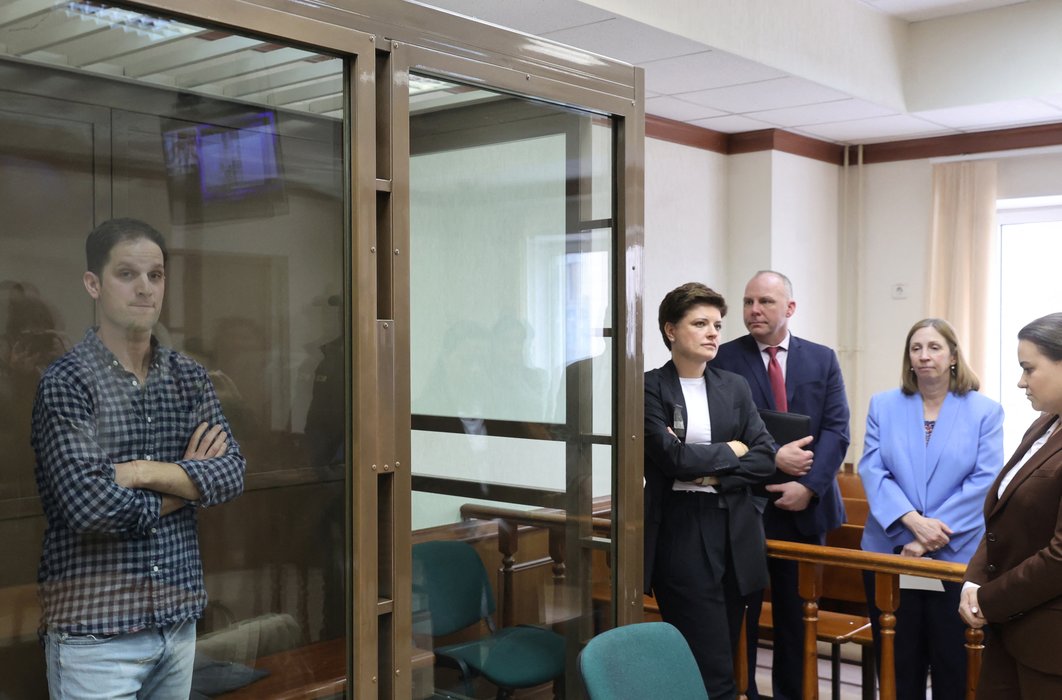
Freedom of association
Justice Ministry announces decision designating WWF as “foreign agents”
In March 2023 the Ministry of Justice announced its decision to classify the Russian branch of the World Wide Fund for Nature (WWF) as a “foreign agent.” The Ministry justified this on the grounds that WWF receives funding from foreign sources and allegedly obstructs Russia's industrial development under the guise of protecting the environment and preserving biodiversity. In addition, Justice Ministry officials claimed that the fund portrayed the decisions of Russian state agencies and their policies in a negative light.
According to Gazeta.ru, the initiative to label the Fund as an agent of foreign influence came from other environmental organisations active in the country. Among others, the Russian Ecological Society (REO) asked the Ministry of Justice to review Greenpeace and WWF to see if they should be forced to register as foreign agents. In its response, WWF criticised REO for its own lack of transparency and non-compliance with Russian law, claiming that the "unknown" organisation does not publish its financial reports and uses the word "Russian" in its name in a way that violates regulations on the use of this term. WWF stressed that it has been working in Russia for almost 30 years and has a long history of cooperation with various environmental organisations in the country. They went on to emphasise that all the Fund's employees, including the highest level of management, are Russian citizens.
In addition to WWF, the Ministry of Justice added the following people to the list of foreign agents in the same month: economist Sergei Guriev, politician and former Duma deputy Gennady Gudkov, former head of Yandex.News Lev Gershenzon, feminist blogger Nika Vodvud and journalist Daniil Gubarev.
Freedom of peaceful assembly
Protests are allowed if they do not criticise Russia's invasion of Ukraine or the Kremlin
In March, around 40 people gathered in a square in the centre of Ulyanovsk to demand the reintroduction of direct elections for the city's mayoralty. In the same month, a rally against rising utility prices took place in Novosibirsk, with around 300 people in attendance.
As reported by the Moscow Times, both rallies proceeded without arrests despite police being present in large numbers. Since Russian authorities have successfully suppressed all major protests with their crackdown on freedom of assembly, they can afford not to intervene in demonstrations they consider harmless, such as the one in Ulyanovsk, according to the Times. As a result, small street protests continue to take place in regions across the country.
After the expansion of censorship in March 2022, protests in the country have become rare. The restrictions imposed and the violent suppression of protests have made people fearful of any protest activity, no matter how minor.
Сегодняшний митинг в фотографиях!
— Коалиция Новосибирск 2020 (@Coalition_NSK) March 25, 2023
В ходе него было собрано 283 подписи под коллективным обращением в прокуратуру!
Спасибо всем, кто поучаствовал! pic.twitter.com/rn54Z9r1a5
Activists told The Times that police have rarely intervened in demonstrations recently, as long as there is no criticism of the central government or Russia's invasion of Ukraine. However, a major increase in demonstrations could lead to more crackdowns.
According to the law, almost all types of protests must be registered with the authorities in advance. Following a 2012 amendment to the law on public gatherings, protest areas were designated in all Russian regions where gatherings of less than 100 people can take place without prior permission. However, these areas are often far from city centres, and most protest organisers obtain official permission anyway to reassure people who would otherwise fear arrest.
Freedom of expression
Reporter for the Wall Street Journal arrested on espionage charges
On 30th March, US journalist Evan Gershkovich was arrested in Russia on charges of espionage. According to the human rights group OVD-Info, which tracks dissident repression in Russia, this is the first time a foreign journalist has been arrested on this type of charge. The White House strongly condemned his arrest and US Secretary of State Antony Blinken expressed concern about Gershkovich's detention. US officials said they immediately requested access to Gershkovich but received no response. According to the Wall Street Journal, Gershkovich lost contact with his editors while working in Yekaterinburg.
The Russian security service FSB claimed to have intercepted "illegal activities" and accused Gershkovich of "gathering information classified as a state secret about the activities of a Russian arms company". According to the organisation Reporters Without Borders, he had travelled to Yekaterinburg to report on the Russian mercenary group Wagner. FSB agents took Gershkovich to the Lefortovo District Court in Moscow, where he was formally arrested and is to remain in custody until 29th May. The courtroom had already been cleared of staff and visitors, and Gershkovich's lawyer reported that he was denied access.
Espionage carries a maximum sentence of 20 years in prison in Russia.
For the first time in the history of Putin’s Russia a foreign reporter was arrested on espionage charges. Experts believe this could be a signal to the journalist community: never cover military affairs. @evangershkovich was allegedly preparing a report on the Wagner Group https://t.co/GKmrgsPJP0
— OVD-Info English (@ovdinfo_en) March 30, 2023